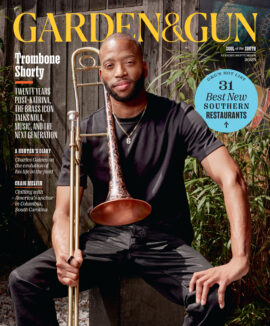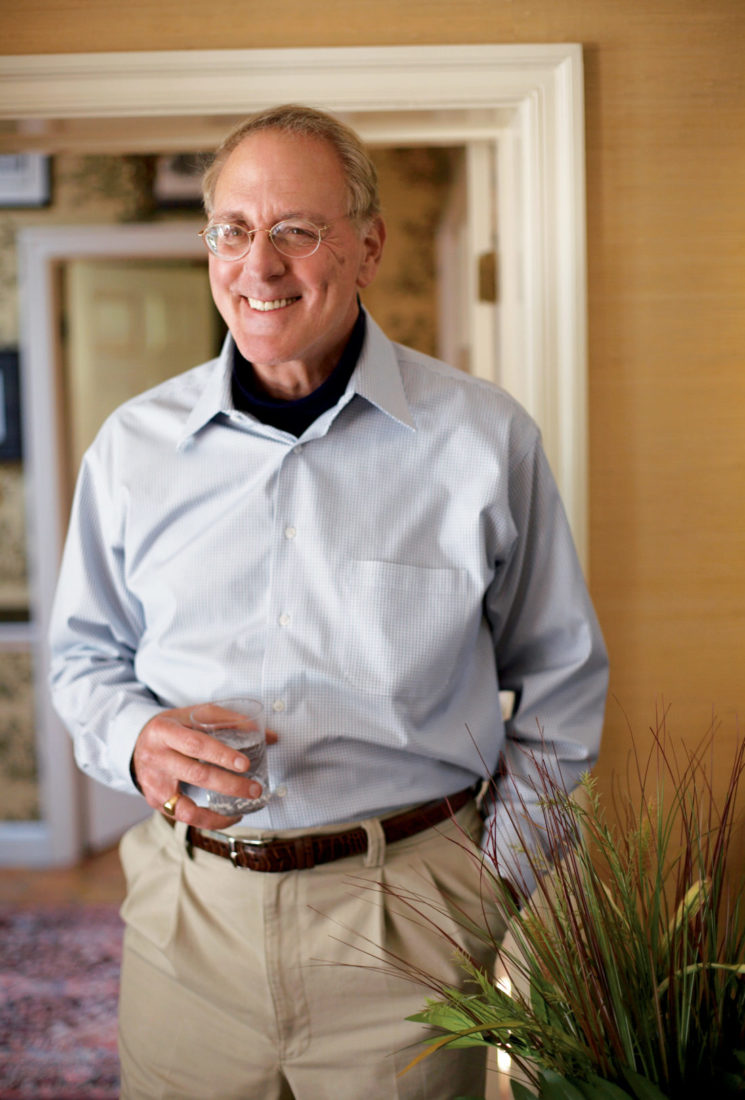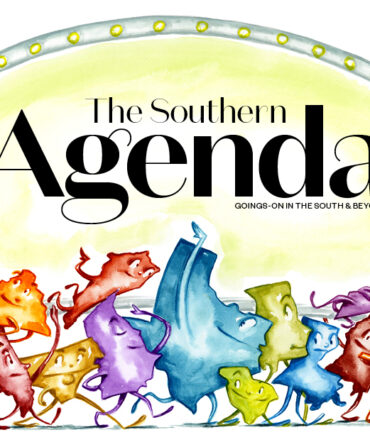The Alabama author Winston Groom passed away today at his home in Point Clear. He was 77. A longtime contributor to Garden & Gun, Groom was the author of more than twenty novels and nonfiction books that covered topics ranging from the Civil War and World War II to the American West and Alabama football. But he was best known as the author of the novel Forrest Gump, which became one of the most iconic films of the twentieth century.
Groom was a graduate of the University of Alabama. After a tour in Vietnam, he worked as a reporter in Washington, D.C., covering the court system for the Washington Star. He soon decided to try his hand at writing books and moved to New York City. He was quickly taken in by the literary scene there, hanging out with the likes of Kurt Vonnegut, George Plimpton, and Joseph Heller and spending his evenings drinking and gossiping at Elaine’s, a favorite among writers. Groom began his book-writing career with two well-reviewed novels (Better Times Than These in 1978 and As Summers Die in 1980) and a nonfiction book about a POW in Vietnam.
MORE FROM WINSTON GROOM: HOW I TAUGHT MYSELF TO SHOOT LEFT-HANDED
His next book, a funny but touching novel about a slow-witted man from the fictional Greenbow, Alabama, appeared at first to be just another positive step forward in his budding literary career. Published in 1986, Forrest Gump received favorable reviews from some of stingiest literary critics in the country and sold around 30,000 copies in hardcover. It would go on to change his life dramatically.
Eight years after the novel’s publication, in July of 1994, the movie version of Forrest Gump—directed by Robert Zemeckis and starring Tom Hanks, Robin Wright, and Gary Sinise—opened in theaters nationwide. It was an immediate hit, both culturally and commercially, winning six Academy Awards (including Best Picture) and taking in $678 million worldwide. The movie vaulted Groom’s book to the top of the bestseller lists, eventually selling close to two million copies and spawning two bestselling spinoffs, Gumpisms: The Wit and Wisdom of Forrest Gump and Gump & Co.
MORE FROM WINSTON GROOM: THE LEGEND OF BLACK GOLD
Groom was imposingly tall but avuncular, witty but unpretentious. When he was asked about how the movie version of Forrest Gump had changed his life, he often answered, simply: “I upgraded to a better brand of toilet paper.”
The idea for the novel, he said, came from a lunch he had with his father during which the elder Groom reminisced about his childhood in Alabama. “In his neighborhood there was a young boy who was what you would call slow-witted, and the kids in neighborhood would tease him and chase him and throw sticks at him,” Groom recalled. “Then one day this truck arrived outside of the boy’s house, and out of it came this big piano. And within a few days, this beautiful piano music began wafting out of the windows. It turned out that this boy was some sort of musical genius.”
Groom holed himself up and wrote the novel in six short weeks. “I think the thoughts flowed from what I call the lizard brain, which is down in the back of my neck, and straight onto my ten fingers at the keys,” he said.
The setting of the book, he said, made him homesick. He moved back to Alabama from New York shortly after finishing it.
MORE FROM WINSTON GROOM: THE ART OF SCREEENED-PORCH SITTING
Though the movie version did not hew exactly to some of the details in the novel (Forrest Gump was, for instance, both a pro wrestler and an astronaut in the book), Groom was pleased with the way the film came out and attended the Academy Awards ceremony. “The night before, there was a big party,” he recalled. “I was talking to [Tom] Hanks and he said, ‘I’m not sure you did me any favors here. They’re going to want me to play this character forever.’ I told him I was in the same boat. The next book I wrote could be the Bible and all people would want to talk about is Gump.”
When I last spoke to Groom, for an article in this magazine celebrating the 25th anniversary of the movie version of his novel in 2019, I asked him what he thought about it all so many years later. “It was a helluva ride,” Groom said. “There’s not a week that goes by that half a dozen people don’t ask me for an autograph for Gump. In the end, I’m just really damn grateful for the whole thing.”
Read more of Groom’s work for G&G here.








